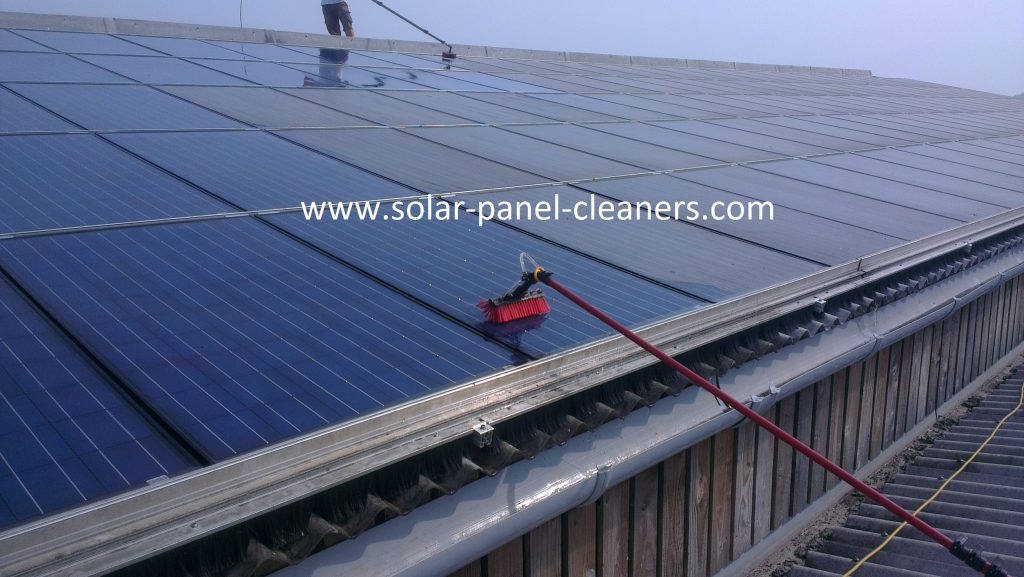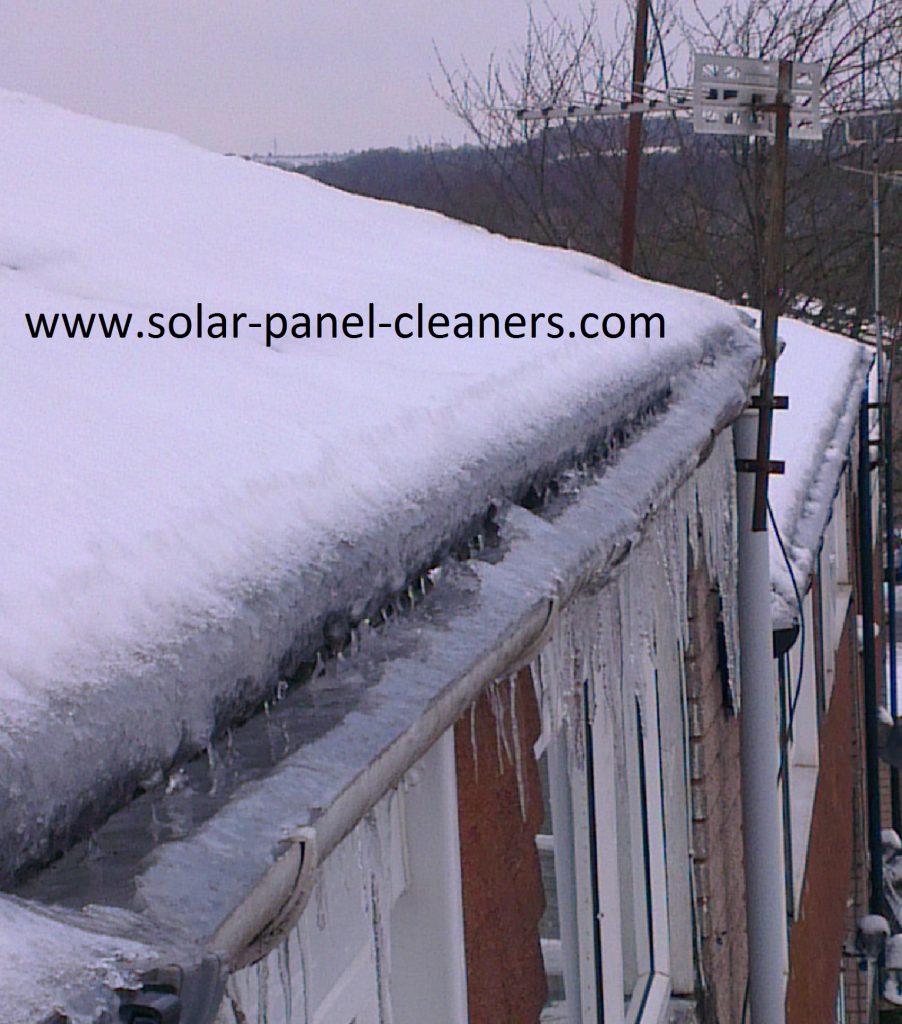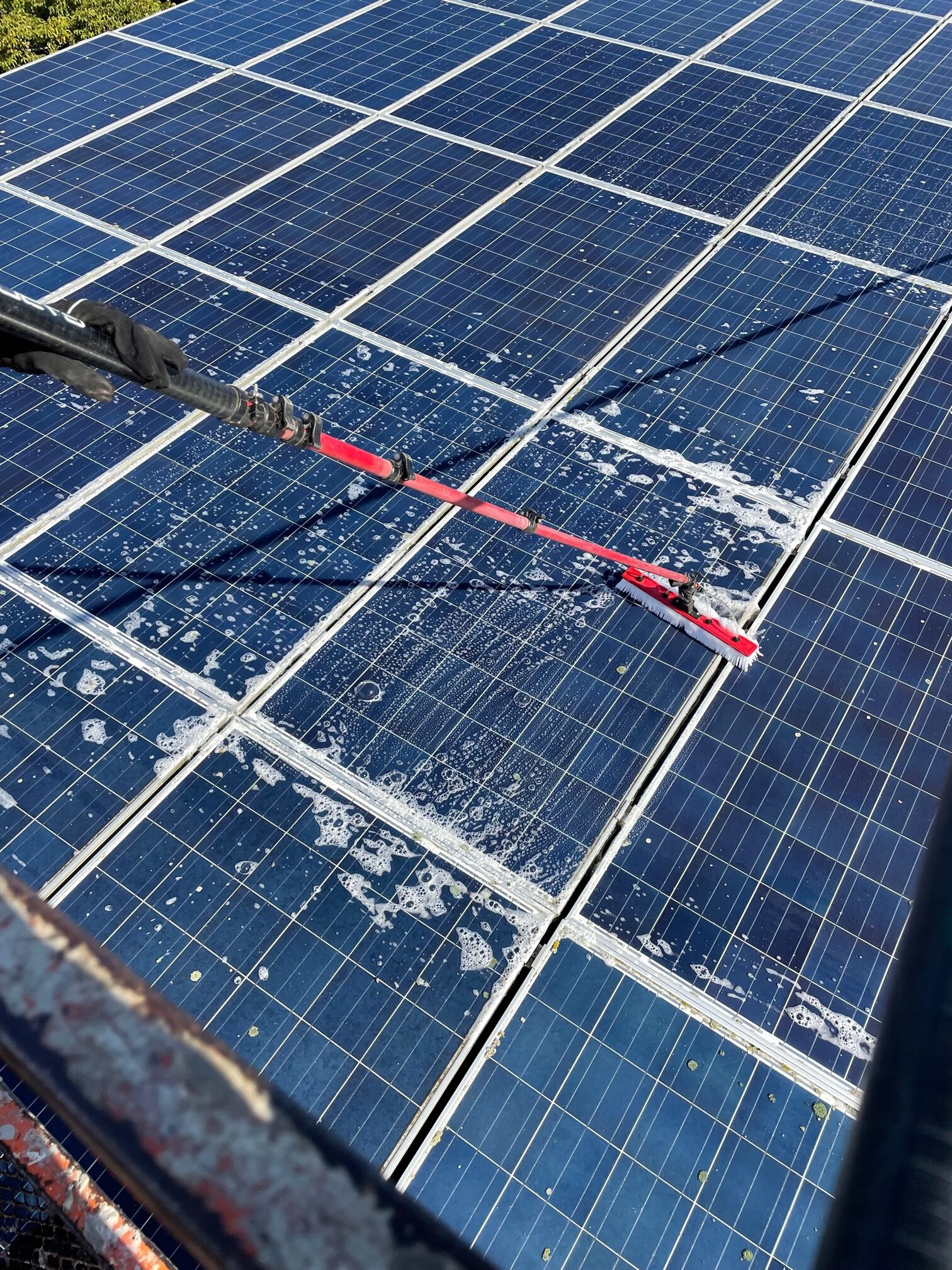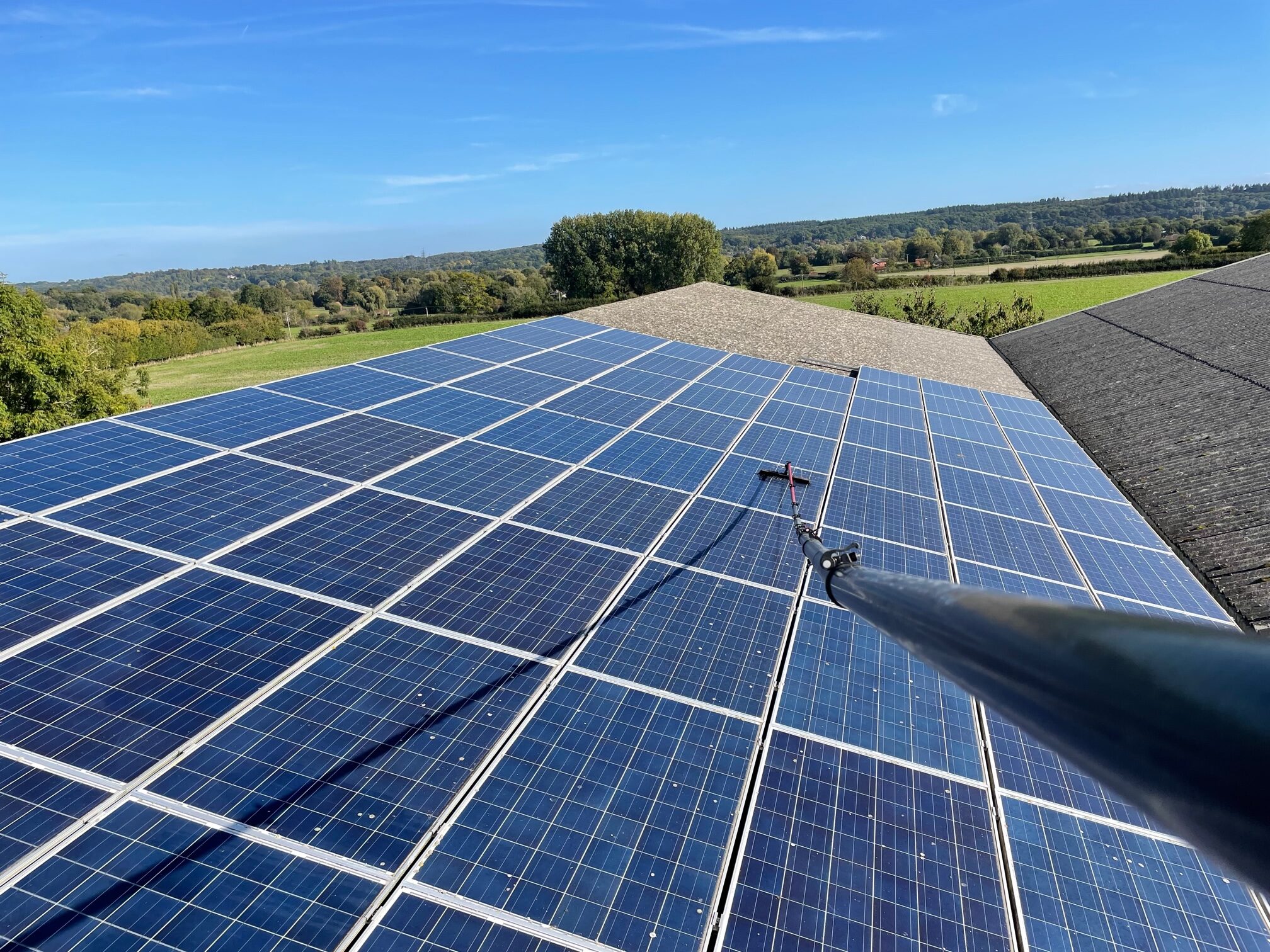Below are our top 8 facts about solar panel cleaning. Demand continues to rise as more solar panels are installed globally. This throws up new questions. Many people are confused whether panels need cleaning. Can they do it themselves? Is it value for money? Who should they use? Finally, what is an ice dam? With these questions in mind, we give you 8 top facts about solar panel cleaning.
Fact 1: Solar panels need to be cleaned
This is the first thing that needs to be recognised because in the past, solar panels have been mis-sold under the guise of being self-cleaning. The vast majority on the UK market are not. All solar panels, regardless of location, need to be cleaned. Though it is true that some need to be cleaned more than others.
Fact 2: Solar panel cleaning is not an easy DIY job
Because many solar panels are mounted on roofs, they are not particularly accessible. Without professional solar panel cleaning equipment, accessing and walking around on the roof may be the only way to clean the solar panels. The risk of falling is increased when the roof gets wet during the cleaning process and then becomes slippery. As well as this, solar panel manufacturers do not recommend using chemicals of any kind when cleaning solar panels. Even water with a high mineral content, such as tap water, can leave deposits behind and impede your solar output.
Fact 3: Solar panel cleaning carries a risk of electrocution
Risk of electrocution can come in a variety of ways. Exposed live wires from a sub-standard install or wires that have been pecked at by birds present another avenue of electrocution. Solar cells are protected only by a layer of glass. If the glass is broken and water enters into the working of the solar panel, lethal electrocution is a real risk. During the course of our work, we have come across solar panels which have been broken by golf balls and even one that apparently had creature dropped on panel by a bird of prey! If you read the above article, you would also have noticed that solar panel manufacturers do not recommend pressure washing your solar panels. This video, which we emphasise is not ours, highlights the most dangerous way of solar panel cleaning we have found!
Fact 4: Solar panels on farms get the dirtiest
Solar panels on farms are particularly prone to a build-up of grime due to the very dusty atmosphere that prevails on a farm. Solar panels mounted on dairy and poultry sheds are usually mounted at a shallow angle, have extractor fans blowing out sawdust, chicken feed dust and other forms of detritus. When the atmosphere is dry, this blows around in the wind and settles on the solar panels. When the atmosphere is wet or damp, the dust particles are absorbed into the rain droplets which then fall on to the solar panels. Because the solar panels are mounted on a shallow angle, it is hard for the water to run off and the dust just accumulates and the panels need cleaning more regularly.

Fact 5: Solar panel cleaning is not always worth the money!
The prices some companies are charging is astronomic and does not represent good value for money for the client. A typical residential 4KW 16 panel system will produce about £850.00 per year in revenue. Some companies are charging upwards of £5 per panel. Your annual spend on a recommended twice yearly clean will therefore come in at £160.00. That’s about 20% of your total annual generation spent on just cleaning! At those prices, it simply is not value for money. Our charges for residential systems are lower than that. That said, the larger the array, the better value solar panel cleaning represents. Anyone owning an array 30KW or larger should be getting their panels cleaned AT LEAST once a year. The money you will spend on having your panels cleaned means you will be quids in from the extra generation that the cleaning will bring. We have spent many hours calculating what our prices need to be for the commercial and residential markets in order to balance our profit margin while still representing value for money for the client. The fact that we cleaned over 53,000 solar panels during 2013, the vast majority from repeat custom, shows that we have struck the balance correctly and that our clients do see our price as being good value for money.
Fact 6: The best time to clean solar panels is in Spring
In the UK, the best time to clean your solar panels is between April and June. This means that as we head into the days with the longer sunshine hours, your solar panels will be clean and will produce the maximum amount of electricity because of the longer days. For many solar array owners, it will take 10 years to see the return on their investment. A loss of 10% in generation over a year means it can take a whole year extra to get back the return on investment. This does not mean though that solar panels cannot be cleaned all year round. A clean in November that brings a 20% increase in generation, still represents great value for money. Why, is explained in point 7.
Fact 7: Solar panels are worth cleaning in preparation for Winter
During summer, the atmosphere is generally drier and dustier. This is especially true on large scale solar farms and solar panels located in rural locations. After harvest, there is very often a thick layer of dust lying on solar panels from the dust thrown up during the harvest. This reduces output dramatically. We have independently confirmed solar output data to prove that dust after harvest can cause up to a 43% loss in generation. Couple this with shorter days and your output plummets. However, whereas Spring is the best time to clean your solar panels, solar panels are more efficient on cold sunny days as opposed to hot sunny days. Because you lose some output from having less sunshine hours, it is important to have clean solar panels in winter so that you can produce electricity efficiently because of colder days.
Fact 8: Solar panels can cause ice dams
Snow on solar panels represents a couple of challenges which can be costly to a homeowner. The most obvious is the loss of generation due to the solar panels being covered in snow. This places the solar panels in permanent shade, even on a cold sunny day and we have just discussed why those days are so important. Removing the snow as soon as possible will help you begin to produce electricity from you solar panels again. A more sinister effect though is what happens when the snow begins to thaw. The heat trying to escape through the roof of your house, however small, causes the lower layer of snow touching the solar panel to melt. This thawing lower layer of snow runs as water down the roof into the guttering on your house. If your guttering contains debris, the water may not be able to run down the downpipe. At night, this water can freeze into a long solid block of ice in your guttering, forming what is known as a ice dam.

You can clearly see from the picture the solid block of ice and icicles formed from thawing and freezing water trying to escape. Ice dams are particularly hard to remove without knowing the correct techniques. The day after the ice dam forms, the escaping heat again tries to thaw the lower layer of snow. With the ice dam now formed in the guttering, the water can no longer run off the tiles of your roof and into the guttering. The water then seeks the path of least resistance which is actually uphill, under the tiles on your roof and into your loft space. With heavy snowfall, this amount of thawing ice seeping into your roofspace can cause a lot of damage. We attended 3 incidents of this happening locally last winter, all clients had water dripping into their bedroom or bathroom. We had multiple enquiries from all over the country asking how they could rectify the problem. We offer a complete removal service of both the snow from your solar panels and the ice dam from the guttering. Do not hesitate to contact us via our advice line if you experience problems from snow or ice on your solar panels.
These are our top 8 solar panel cleaning facts. Get in touch if you have any questions and we will try to answer them for you. With this information, you are now in a sound position to make an educated decision as to if, when, how and who should clean your solar panels and now be aware of the effects if you choose not to. Please feel free to contact us for more information or for a free quote for your solar panel cleaning.


